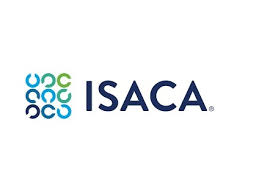Top 7 Do’s and Don’ts of Social Media for Healthcare Marketing

Almost every individual with a smartphone is more likely to search the internet for health information when they encounter certain symptoms. As a matter of fact, around 77% of adults search for health information on different online platforms. Interestingly, social media has emerged as one of the most preferred digital platforms for patient engagement.
Healthcare systems could go through a major transformation with the use of social media in marketing. With a well-crafted social media strategy, healthcare organizations and physicians could develop relationships with patients and share insights alongside establishing their identity as thought leaders.
The right social media digital marketing strategy for healthcare industry helps in improving word-of-mouth referrals, personalization of communication with patients, and earning their trust. Let us learn more about the essential factors that could determine the chances of success for healthcare digital marketing initiatives.
Role of Social Media in Healthcare Digital Marketing
The importance of social media in patient engagement and healthcare promotion is clearly visible in the massive user base on social media platforms. For example, social media could serve as the fastest platform for raising awareness regarding emerging health concerns. Twitter, Facebook, and Instagram are some of the popular social media platforms that can expand the reach of healthcare awareness initiatives.
Healthcare brands could also use social media as an effective platform for capitalizing on the benefits of digital marketing in healthcare. Healthcare service providers can utilize social media to share factual medical information or promote their services. Digital marketing in healthcare involves the effective use of digital platforms like social media for establishing direct connections with the target audience.
DO’s of Social Media for Healthcare Digital Marketing
1. Prioritize Patient Privacy
The foremost entry among best practices for using social media to empower healthcare digital marketing involves prioritizing patient privacy. You have to ensure that the data shared by patients remains confidential. On top of it, healthcare providers must also follow legal compliance by following HIPAA rules. You can engage directly with clients through social media. However, it is also important to practice caution and sensitivity in sharing health information through direct messages.
2. Share Accurate Health Information
Any type of factual information on healthcare could help in improving the engagement of patients on social media. However, it is important to ensure the accuracy of health information shared with users through blog posts, general health tips, and videos. Double-checking and verifying every piece of content before posting on social media could improve the chances of delivering factual health information to users, thereby improving your credibility.
3. Engage and Respond to the Audience
Social media provides an effective tool for direct communication with your target audience. You can respond to common health questions and inquiries about your services without any complicated procedures. For example, Q&A sessions on your social media channels could help in improving user engagement with your brands. Other strategies for engaging with the audience involve reaching out to other practitioners from rural areas and responding to their needs.
4. Use Patient Testimonials Wisely
Healthcare organizations should use patient testimonials obtained with the consent of patients. You can use the patient testimonials on different social media platforms without violating patient privacy and HIPAA compliance. HIPAA compliance implies that you have to remove identifiable information, such as names, insurance information, and dates of birth, from patients. The compliance concerns with HIPAA can be avoided with the consent of patients for sharing their testimonials on social media.
5. Educate with Visual Content
Visual content has the power to attract the attention of the audience immediately. For example, social media posts with images are likely to have almost 95% more views than the ones without images. Visual content, such as infographics, could help you break down complex topics into a few attractive images and a captivating narrative.
6. Maintain Professionalism
A professional tone in communication with your target audience through social media helps strengthen your identity as an industry leader. You should maintain consistency in all your messages and content, highlighting your expertise or area of specialty.
7. Monitor and Adapt to Feedback
The case studies of brands that have achieved success through social media in digital marketing would show the importance of social listening. Social media lets you know what your customers are thinking about your brand and how they feel about your different products and services. It serves as a flexible channel for obtaining patient feedback. At the same time, you must be prepared to make the necessary changes and achieve the desired results.
Don’ts of Social Media for Healthcare Digital Marketing
1. Post Sensitive Information
Never share sensitive information of patients online, as hackers could use it for malicious purposes. In addition, sharing sensitive patient data could also lead to financial and legal consequences for healthcare institutions, physicians, and healthcare digital marketing teams.
2. Overlook Content Quality
Quality draws your target audience closer to your content. Make sure that your social media posts deliver value to the audience by solving their pain points. Rather than sharing hundreds of blogs on generic healthcare topics, you can have better results with ten posts on the latest healthcare trends and news.
3. Ignore Engagement Metrics
If you do not track the interactions between your brand and the target audience on social media, you lose vital insights. Monitoring the audience engagement metrics helps you identify the types of content that attract the audience’s attention.
4. Use Complicated Medical Language
Every person in your target audience is not an expert in medical terminology. Therefore, social media posts for healthcare marketing should have simple terms that enable clear and comprehensible communication.
5. Forget to Update Regularly
Another common mistake of healthcare brands in social media marketing is inconsistency. Would you trust a brand that does not have a fixed schedule for posting on social media? Healthcare brands should post regular updates on social media to ensure that the audience trusts the brand for the latest updates.
6. Be Promotional Over Informative
More often than not, digital marketing initiatives in healthcare with social media could incline more towards promotions. However, healthcare brands should focus on providing informative content that actually helps the audience. The right balance of informative and promotional content could help in improving user engagement.
7. Disregard Negative Feedback
Ignoring the negative feedback for your content on social media does not solve the problem. You must learn about the best practices for handling negative comments and criticism, such as tendering a sincere apology and replying to every comment. With personalized messages, you can reach out to clients to solve their concerns, thereby increasing trust in your brand.
Conclusion
The role of social media in digital healthcare marketing has gained the attention of multiple stakeholders in the healthcare industry. Social media offers a flexible platform for reaching the target audience directly with images, audio, or video content. However, you have to follow the dos and don’ts for ensuring a successful healthcare marketing strategy on social media. The services of a reliable healthcare digital marketing consultant could help you tap into the potential of social media for empowering your brand’s digital marketing strategy.



